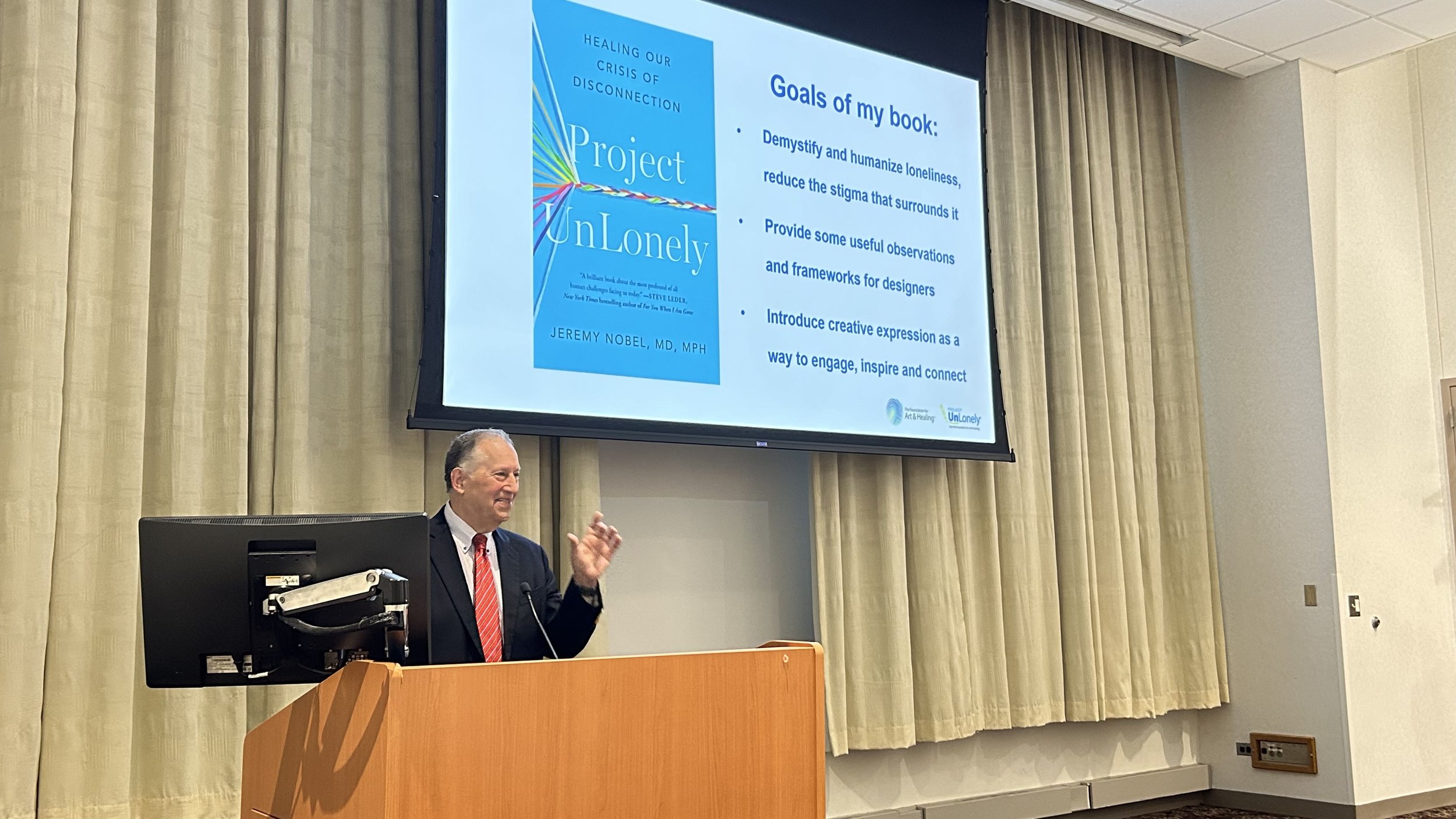2024 Schaalman Senior Voices Thought Leader Lecture: From Isolation to Inspiration
In honor of Older Americans Month and Mental Health Awareness Month, RUSH Generations and the RUSH Center for Excellence in Aging presented the 2024 Schaalman Thought Leader Lecture, From Isolation to Inspiration. This year's distinguished speaker, Dr. Jeremy Nobel of Harvard Medical School and Harvard T.H. Chan School of Public Health, discussed the significant impact of loneliness on public health and presented creative expression as a viable solution.
The following takeaways from the lecture outline what loneliness is, how loneliness impacts individuals and communities, and actionable steps we can take to decrease loneliness.
““What if we started thinking about loneliness, not as something that we did wrong, or that we’re flawed or broken or incomplete…but just as a biological signal, just like thirst is a signal. We need hydration…we need human connection.” ”
Loneliness, an overview
Loneliness is a public health crisis, significantly affecting individuals' health and wellbeing. In 2023, the U. S. Surgeon General released an advisory recognizing loneliness as an epidemic. The advisory highlighted that loneliness stems from the gap between desired and actual social connections, impacting people on multiple levels: individual, relationship, community, and societal.
Additionally, loneliness often leads to a vicious cycle of self-isolation, worsening the condition. Citing his book, "Project UnLonely: Healing Our Crisis of Disconnection," Dr. Nobel outlined how loneliness can be categorized into three types:
Interpersonal/Psychological: Lacking close, trustworthy relationships.
Societal/Organizational: Feeling unsafe or unvalued in one's community.
Existential/Spiritual: Questioning life's meaning and one's significance.
During the lecture, Dr. Nobel facilitated a creative exercise with the attendees. Here are a few examples of what the attendees created.
Opportunities to foster connection
Social connections can reduce stress hormones and inflammation, providing a sense of safety, resilience, hope, and meaning. Such connections can also enhance physical activity, nutrition, and sleep, thereby positively influencing overall health.
Creative arts can be a means to combat loneliness. Engaging in artistic activities can reduce cortisol levels, encourage sharing personal stories, and foster a sense of purpose and belonging. He encouraged the audience to participate in creative exercises, such as writing haikus, to experience the positive effects firsthand.
Dr. Nobel also highlighted the Project UnLonely Programs, which offers group opportunities for creative expression, leading to improved moods and positive behavioral changes. One of the opportunities for expression that was shared was a Project UnLonely Film titled Drawings for my Grandchildren, a short video demonstrating how drawing and technology fosters intergenerational connection across continents for one family.
Call to Action
Dr. Nobel concluded with a call to action, highlighting 3 ways that we can all work to combat loneliness in ourselves and our families, communities, and workplaces:
Be curious: Engage with new experiences and creative endeavors.
Make connections: Share personal stories and encourage others to do the same.
Foster a non-judgmental culture: Promote a community that values connection and dignity for all.
By expanding awareness and fostering a culture of connection, we can address the loneliness epidemic and improve the health and wellbeing of individuals and communities alike.
You can review the presentation slides, or watch a recording of the lecture, on the Center for Excellence in Aging website at www.e4center.org.


